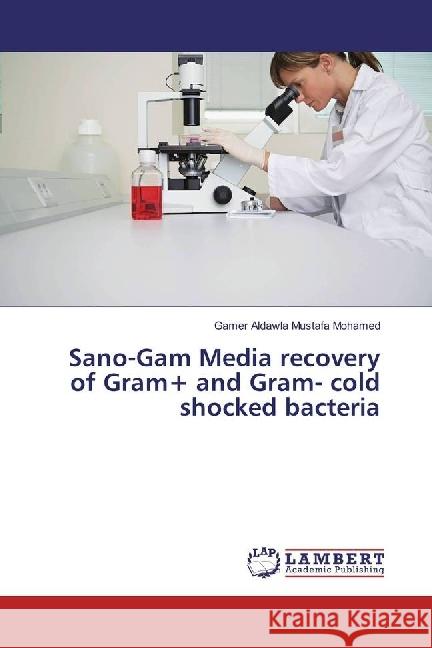Sano-Gam Media recovery of Gram+ and Gram- cold shocked bacteria » książka
Sano-Gam Media recovery of Gram+ and Gram- cold shocked bacteria
ISBN-13: 9783330062573 / Angielski / Miękka / 2017 / 140 str.
The present research was conducted to study the role of trace elements, catalase and pyruvate on recovery of cold-shocked bacteria either separately and/or in combinations, selection of bacteria incriminated in frozen food contamination and design of a proper medium that recover almost all injured cells. The bacteria studied included Escherichia coli, Salmonella spp. Staphylococcus aureus and Klebsiella pneumoniae. The temperature used for shocking bacteria was -20 C for one hour. Trace elements gave excellent results in recovery of injured bacteria. But copper gave a satisfactory results in enhancing the growth of almost tested bacteria. Unknown behavior was observed in case of K. pneumoniae, which accumulated around copper and returned to the normal behavior by acquiring their capsule. This might indicate the wrong concept in classification of copper as bacteriostatic agent. Magnesium has a strong ability in recovering of injured bacteria as well as sodium pyruvate which has no antagonistic effect with any of the trace elements or pyruvate.











